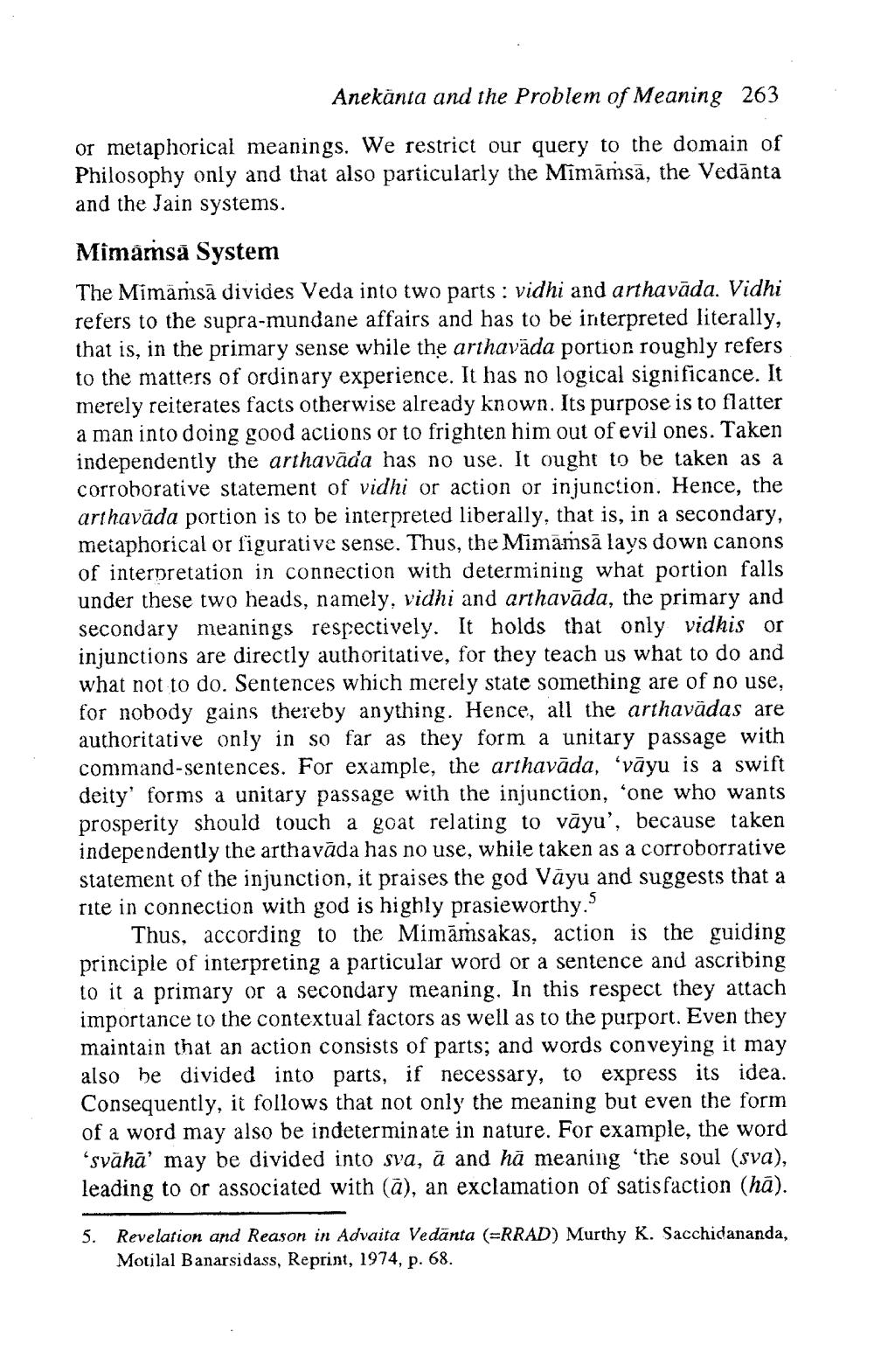________________
Anekanta and the Problem of Meaning 263
or metaphorical meanings. We restrict our query to the domain of Philosophy only and that also particularly the Mîmāmsā, the Vedānta and the Jain systems. Mimamsă System The Mimämsā divides Veda into two parts: vidhi and arthavāda. Vidhi refers to the supra-mundane affairs and has to be interpreted literally, that is, in the primary sense while the arthavada portion roughly refers to the matters of ordinary experience. It has no logical significance. It merely reiterates facts otherwise already known. Its purpose is to flatter a man into doing good actions or to frighten him out of evil ones. Taken independently the arthavād'a has no use. It ought to be taken as a corroborative statement of vidhi or action or injunction. Hence, the arthavada portion is to be interpreted liberally, that is, in a secondary, metaphorical or figurative sense. Thus, the Mimāṁsā lays down canons of interpretation in connection with determining what portion falls under these two heads, namely, vidhi and arthavāda, the primary and secondary meanings respectively. It holds that only vidhis or injunctions are directly authoritative, for they teach us what to do and what not to do. Sentences which merely state something are of no use, for nobody gains thereby anything. Hence, all the arthavādas are authoritative only in so far as they form a unitary passage with command-sentences. For example, the arthavāda, “vāyu is a swift deity' forms a unitary passage with the injunction, 'one who wants prosperity should touch a goat relating to vāyu', because taken independently the arthavada has no use, while taken as a corroborrative statement of the injunction, it praises the god Väyu and suggests that a rite in connection with god is highly prasieworthy
Thus, according to the Mimāmsakas, action is the guiding principle of interpreting a particular word or a sentence and ascribing to it a primary or a secondary meaning. In this respect they attach importance to the contextual factors as well as to the purport. Even they maintain that an action consists of parts; and words conveying it may also he divided into parts, if necessary, to express its idea. Consequently, it follows that not only the meaning but even the form of a word may also be indeterminate in nature. For example, the word 'svāhā' may be divided into sva, ā and hā meaning 'the soul (sva), leading to or associated with (ā), an exclamation of satisfaction (hā).
5. Revelation and Reason in Advaita Vedanta (=RRAD) Murthy K. Sacchidananda,
Motilal Banarsidass, Reprint, 1974, p. 68.




